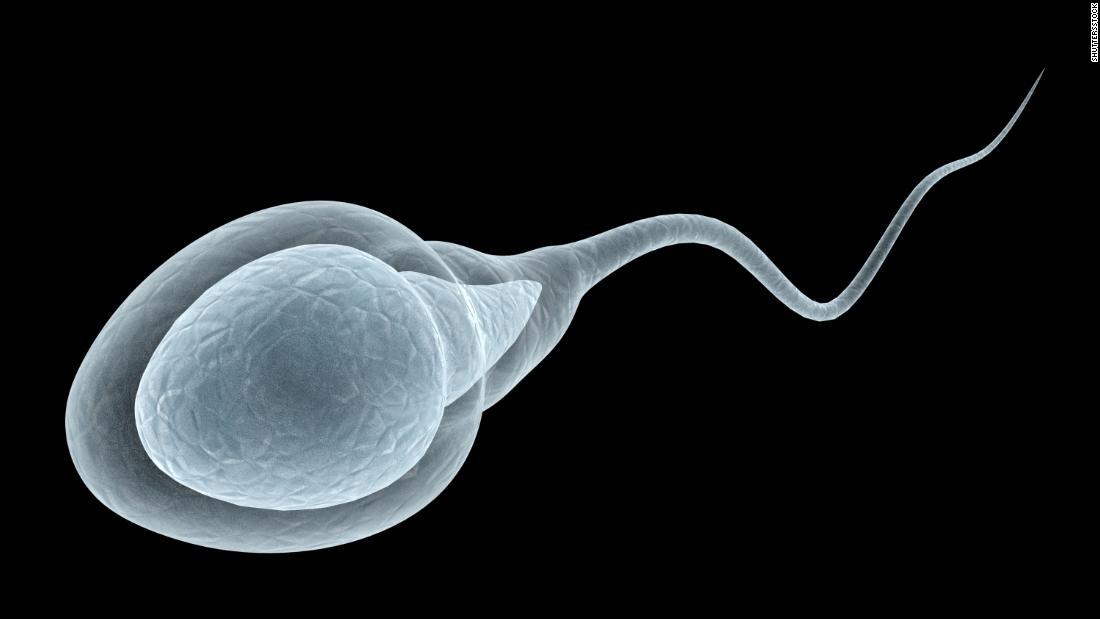Severe cases of covid-19 could affect the quality of men’s sperm, possibly impacting their fertility, according to a new study published Thursday in the journal Reproduction.
“This report provides the first direct evidence to date that COVID-19 infection affects semen quality and male reproductive potential,” the study noted.
However, experts who were not involved in the investigation were immediately skeptical of the report’s conclusion. So they asked for caution when generalizing the study results excessively.
“I must make a strong note of caution in your interpretation of these data. For example, the authors state that their data shows that ‘Covid-19 infection causes a significant impairment of male reproductive function.’ But it really only shows an association, ”Allan Pacey warned in an email. Pacey is Professor of Andrology at the University of Sheffield in South Yorkshire, UK.
“Being sick from any virus, such as the flu, can temporarily lower your sperm count (sometimes to zero) for a few weeks or months. This makes it difficult to determine how much of the reductions seen in this study were specific to COVID-19 rather than just being sick,” said Dr. Channa Jayasena, also in an email. Jayasena is a consultant in reproductive endocrinology and andrology at Imperial College London.
Furthermore, “it is important to note that there is no evidence of the covid-19 virus in semen. And there is also no evidence that the virus can be transmitted through semen, ”Alison Murdoch, director of the Newcastle Fertility Center at the International Center for Life at the University of Newcastle in the UK, said in an email.
A small study on fertility and covid-19
The research compared the age of 105 fertile men without COVID-19 with 84 fertile men diagnosed with the virus. In that sense, he analyzed his semen at 10-day intervals for 60 days.
Compared to healthy men without COVID-19, the study found a significant increase in inflammation and oxidative stress in the sperm of men with the virus. Their concentration, motility, and sperm shape were also negatively affected by the virus.
The differences increased with respect to the severity of the disease, the study found.
‘These effects on sperm are associated with lower sperm quality and reduced fertility potential. Although these effects tended to improve over time, they remained significantly and abnormally higher in COVID-19 patients. And the magnitude of these changes was also related to the severity of the disease,” said Behzad Hajizadeh Maleki, the study’s principal investigator. Hajizadeh Maleki is a PhD student at the Justus Liebig University of Giessen in Hesse, Germany.
Much higher levels of ACE2 enzyme activity were also recorded in men with COVID-19, according to the research. ACE2, or Angiotensin Converting Enzyme 2, is the protein that provides the entry point for the new coronavirus to latch onto and infect a wide range of human cells.
However, it is not surprising that COVID-19 can affect the male reproductive system. This is because ACE2 receptors, or “the same receptors the virus uses to access lung tissues, are also found in the testes,” said Pacey, who is also editor-in-chief of the journal Human Fertility.
A constant concern
“Since the beginning of the covid-19 pandemic, there has been an understandable (but theoretical) concern about whether this coronavirus could have a detrimental impact on the fertility of men who become infected,” Pacey noted.
Pacey reviewed about 14 published studies on the subject. As a result, he concluded that “any measurable effect of the coronavirus on male fertility was probably only mild and temporary.”
In that sense, he added that the findings of this study could be due to other factors. For example, the use of drugs to treat the virus, which the authors also recognized in the study.
“So all I see in this data set are possible differences in sperm quality between men with a febrile illness (fever) and those who are well. We already know that a febrile illness can affect sperm production, regardless of what caused it, ”Pacey explained.
Sheena Lewis, Emeritus Professor at Queen’s University of Belfast in Ireland, shared similar thoughts via email. “My concern is that the men with COVID-19 had a substantially higher body weight and were on a number of therapeutic treatments.
“We know that obesity alone reduces sperm quality. Covid-19 treatments may also have affected the quality of these men’s sperm. Rather than COVID-19 itself, ”Lewis said.
‘Therefore, longer-term studies are needed. This before the testes are considered a specific high-risk organ for covid-19, ”said Murdoch from Newcastle.

